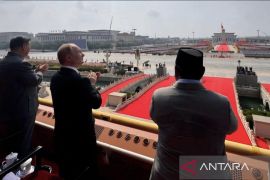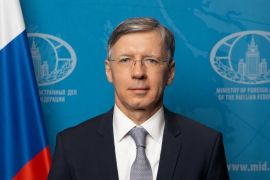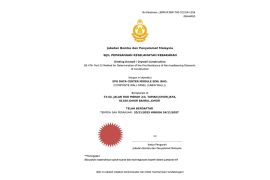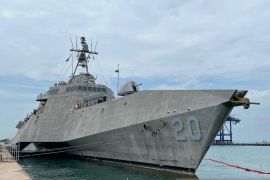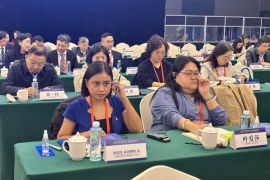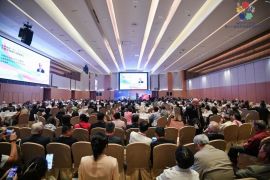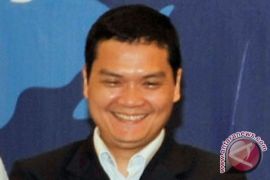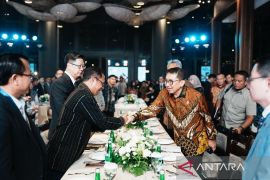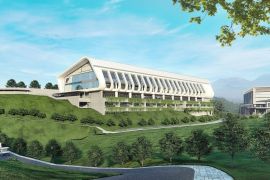The agreement was formulated by the ASEAN leaders in a Joint Statement on the Establishment of An ASEAN Institute For Peace and Reconciliation which was issued at the end of the 18th ASEAN Summit held in Jakarta, on May 7-8, 2011.
In the joint statement, they acknowledged the need to promote a culture of peace as well as respect for diversity and tolerance in order to create the conditions necessary for sustainable regional peace and reconciliation.
"Do hereby: Task our Foreign Ministers to submit their recommendations to the 19th ASEAN Summit for consideration," they said in the statement.
The ASEAN Leaders recalled the Bali Declaration of ASEAN Concord II (2003) and the Cha-am Hua Hin Declaration on the Roadmap for an ASEAN Community 2009-2015, in particular the relevant provisions in the ASEAN Political-Security Community Blueprint on conflict resolution and pacific settlement of disputes as well as post-conflict peace-building.
ASEAN had initially mentioned the consideration to establish the ASEAN Institute for Peace and Reconciliation in the ASEAN Security Community Plan of Action formulated in the Ninth ASEAN Summit, in Bali, Indonesia, in October 2003.
At the Ninth ASEAN Summit, the leaders had adopted the Declaration of ASEAN Concord II (Bali Concord II), which stipulated the establishment of an ASEAN Community resting on three pillars: an ASEAN Security Community, an ASEAN Economic Community and an ASEAN Socio-Cultural Community, which would be developed and implemented in a parallel and balanced manner.
With the ASEAN Security Community (ASC), ASEAN wants to ensure that countries in the region live at peace with one another and with the world at large in a just, democratic and harmonious environment.
Recognizing the sovereign rights of the member countries, the ASC would be based on shared norms and rules of good conduct in inter-state relations; effective conflict prevention and resolution mechanisms; and post-conflict peace building activities.
Rather than a defense pact, military alliance or a joint foreign policy, the ASC promotes an ASEAN-wide political and security cooperation in consonance with the ASEAN Vision 2020.
Foreign Minister Marty Natalegawa after the ASEAN ministerial level meeting in Jakarta, Friday (May 6), explained that being proposed by Indonesia, the ASEAN Institute for Peace and Reconciliation would enhance regional security and help find peaceful solution to disputes among the organization`s member states.
"This is a nongovernmental track to complement other instruments to prevent conflicts," the minister said, adding that the institute would not contradict with the ASEAN principle of noninterference.
Established in 1967, ASEAN groups Brunei Darussalam, Cambodia, Indonesia, Malaysia, Myanmar, Laos, the Philippines, Singapore, Thailand and Vietnam.
Many ASEAN member countries are facing potential border problems, involving among others Malaysia-Indonesia, Philippines-Malaysia, Indonesia-Singapore and Indonesia-Vietnam.
The prolonged political problem between the Myanmar military government and pro-democracy leader Aung San Suu Kyi has also been an obstacle to bring a real peace in ASEAN. Reconciliation between the two conflicting parties in Myanmar has been sought for since a long time.
Cambodia and Thailand are currently engaged in armed conflicts in their border, that caused casualties on both sides.
The ASEAN leaders have agreed to encourage a peaceful settlement of the Thai-Cambodian border conflict, and appreciated and supported the continued role of Indonesia, as the current ASEAN Chair to facilitate the peace effort.
All the ASEAN leaders also agreed that ASEAN must be at the forefront of every effort to settle any dispute peacefully, including the Thai-Cambodian border conflict, the Foreign Ministry said in a statement on Sunday (May 8).
During a meeting between ASEAN Inter-Parliamentary Assembly (AIPA) delegation and the ASEAN leaders, in Jakarta, on Saturday (May 7), AIPA urged the border problem between Thailand and Cambodia be settled peacefully immediately.
"We ask that the border problem between the two be solved through peaceful means," Indonesian House Speaker Marzuki Alie said in Jakarta, Saturday.
The House Speaker said that all kinds of conflicts and hostility would disturb the ASEAN stability. For that reason, all countries grouped in the association should be committed to resolving all kinds of conflicts through a peaceful means.
Dewi Fortuna Anwar, a noted Indonesian political scientist, said the planned establishment of the institute would support efforts to maintain the stability in ASEAN.
"The academic oriented institute would improve knowledge and provide training courses for experts in the region on how to manage peace and promote reconciliation in the region," she said on the sidelines of the 18th ASEAN Summit in Jakarta, Saturday (May 7).
Understanding theory on peace and reconciliation alone would not solve the problem, therefore there should be trained people who comprehend the concept and go to the fields to promote peace and reconciliation, she said.
Dewi said that in addition to giving the idea of about the establishment of the institute, Indonesia could also provide facilities and funds for the realization of the institute.
Fitri Bintang Timur, a researchers of the Institute for Defense, Security and Peace Studies (IDSPS) in a workshop on security, peace and conflict resolution organized by the ASEAN Conference of Civil Society (ACSC) in Jakarta, on May 6, 2011, said that civil society must also be involved actively in keeping the regional peace and confidence building.
"There should be a conflict resolution program and it must be ensured that it would be implemented," she said, adding it should also involve the common people, addition to the governments.
ASEAN believes that it is essential that any disputes and conflicts involving its member countries be resolved in a peaceful way and in the spirit of promoting peace, security and stability in the region.
The 19th ASEAN Summit scheduled to be held in Bali, in October 2011, is expected to realize the establishment of ASEAN Institute for Peace and Reconciliation. (*)
Reporter: By Fardah
Editor: Kunto Wibisono
Copyright © ANTARA 2011
